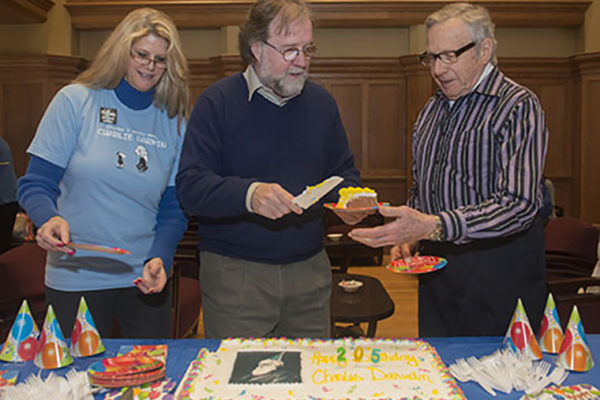STL To Do: Cultural Connections at Portfolio Gallery
Vice Provost Adrienne Davis recommends checking out Cultural Connections this weekend. Portfolio Gallery celebrates its 25th anniversary with a showcase of African-American art and books.
Seven WUSTL staff members chosen for trip to Ghana
Seven staff members from throughout Washington University in St. Louis will participate in this year’s Global Diversity Overseas Seminar Program. They will travel to Ghana in June. The program is designed to give staff a global
perspective on diversity through seminar meetings, group discussions,
assigned readings and community-engagement opportunities culminating in
an international site visit to one of WUSTL’s study-abroad programs.
‘You Can’t Take It With You’ Feb. 21 to March 2
The Vanderhof home is filled with individualists, eccentric more than rugged, chasing assorted muses. Rooms run riot with dance rehearsals, printing presses, wild animals and small explosives. But then Alice falls in love with the son of a Wall Street executive. Can these two families — the free spirits and the moneyed snobs—ever reconcile?
Jubel gift will create new home for WUSTL’s Department of Mechanical Engineering & Materials Science
A major commitment by Donald Jubel, on his family’s behalf, to honor his late parents will provide the impetus for the next phase of physical expansion for Washington University in St. Louis’ School of Engineering & Applied Science.
‘Evo devo’ expert returns to campus
Sean B. Carroll, PhD (left), vice president for science education at Howard Hughes Medical Institute, a WUSTL alum (AB ’79) and one of the country’s foremost experts on evolutionary developmental biology, returned to campus to help the Institute for School Partnership celebrate its annual Darwin Day event for area high school teachers. Instrumental in Carroll’s appearance was mentor and teacher David Kirk, PhD (right), professor emeritus of biology in Arts & Sciences, who called Carroll one of the most “distinguished graduates in biology the department has had.”
MEDIA ADVISORY: Scholars gather in St. Louis to talk about ‘A Great City From the Start’
Scholars from across the nation will help kick off St. Louis’ 250th “Birthday Bash” weekend when they provide their perspectives on the city’s historical significance during a daylong symposium Friday, Feb. 14, at the Missouri History Museum in Forest Park. The symposium will be held from 9 a.m. until 5:30 p.m. in Lee Auditorium. The symposium luncheon will be held at Washington University in St. Louis.
George Washington Week kicks off with birthday cake, buggy rides
Even at 282 years old, George Washington still enjoys a good birthday party. In celebration of George Washington Week, sponsored by WUSTL sophomore honorary society Lock and Chain, our founding father shares why he loves this country — and this campus.
Inspiring successful entrepreneurs and social innovators with the Suren G. Dutia and Jas K. Grewal Global Impact Award in the Skandalaris Center
A recent gift of $1,025,000 will establish the Suren G. Dutia and Jas K. Grewal Global Impact Award in the Skandalaris Center for Entrepreneurial Studies at Washington University. The endowed fund will receive $1 million, with the remaining $25,000 to support awards made during the current academic year. Applications are being accepted until March 24 for awards to support business ventures aimed at catalyzing social change.
Moot court program prepares lawyers for landmark Supreme Court case
School of Law faculty joined in a special moot court program last month to help attorneys prepare for — and students better understand — a landmark intellectual property case that the Supreme Court will consider this month.
Could obstacles to lethal injection lead to an end to the death penalty?
Access to required anesthetic agents for a lethal injection is quickly disappearing, leaving the future of the death penalty in the United States in question. “Because the European Union opposes the death penalty, it prohibits the export of goods for executions [and] requires a time-consuming preauthorization review for every shipment of a potential ‘dual use’ pharmaceutical,” says Rebecca Dresser, JD, biomedical ethics expert and professor of law and of medicine at Washington University in St. Louis. “Capital cases are expensive, and state budgets are tight. High costs and concern about erroneous convictions have led a few states to abolish the death penalty in recent years. Barriers to obtaining lethal injection drugs could lead more states to do away with the death penalty altogether.”
View More Stories

